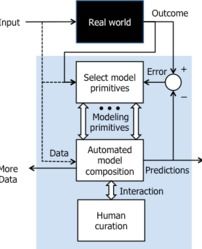Because of a plethora of data from sensor networks, Internet of Things devices and big data resources combined with a dearth of data scientists to effectively mold that data, we are leaving many important applications – from intelligence to science and workforce management – on the table.
It is a situation the researchers at DARPA want to remedy with a new program called Data-Driven Discovery of Models (D3M). The goal of D3M is to develop algorithms and software to help overcome the data-science expertise gap by facilitating non-experts to construct complex empirical models through automation of large parts of the model-creation process. If successful, researchers using D3M tools will effectively have access to an army of “virtual data scientists,” DARPA stated.
+More on Network World: Feeling jammed? Not like this I bet+
This army of virtual data scientists is needed because some experts project deficits of 140,000 to 190,000 data scientists worldwide in 2016 alone, and increasing shortfalls in coming years. Also, because the process to build empirical models is so manual, their relative sophistication and value is often limited, DARPA stated.








